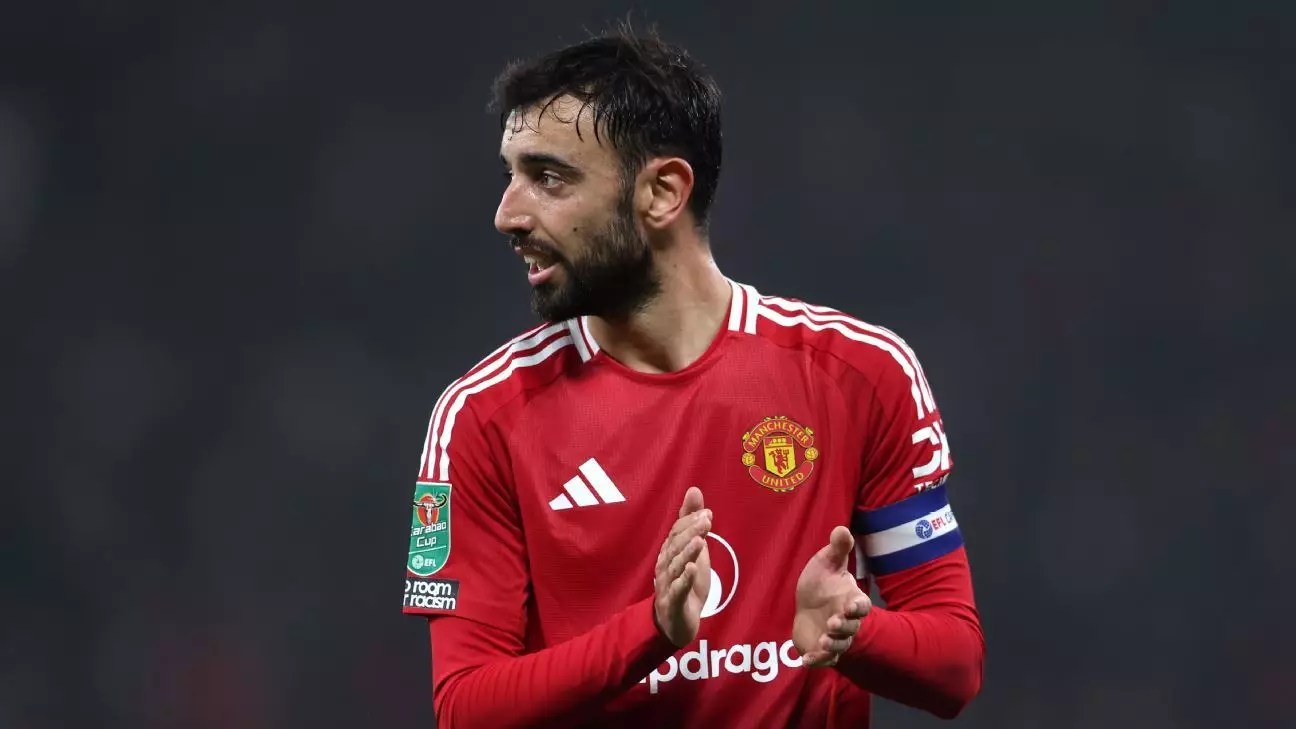In a surprising turn of events following Erik ten Hag’s sacking, Bruno Fernandes, the Portuguese maestro of Manchester United’s midfield, expressed his regret over the situation, indicating a deep-seated emotional connection between players and their coaching staff. The midfielder openly stated that he reached out to Ten Hag after the announcement, as he grappled with the implications of the manager’s departure on both personal and professional levels. This moment highlights a critical aspect of football: the palpable bond that exists within the team dynamics and how a managerial change can send ripples throughout an entire club.
Fernandes’s reflection, stating that “the team is not doing so well” and emphasizing the need for players to shoulder some blame, speaks volumes about the self-awareness within the squad. It is easy to point fingers at management, yet Fernandes’s admission illuminates that the struggles were not solely due to Ten Hag’s decisions but were a collective failure. The fact that he felt compelled to apologize to his former boss showcases the pressure players feel in times of adversity, a burden that often goes unnoticed by fans and analysts alike.
The aftermath of Ten Hag’s departure has intensified scrutiny on United’s performance, compelling the players to reflect on their roles and responsibilities. Under the guidance of caretaker manager Ruud van Nistelrooy, the team faced enormous pressure to rebound from a disappointing start to the season. Their recent matches, including a Carabao Cup victory against Leicester and a Premier League draw against Chelsea, represent a critical juncture for a squad in need of positive momentum.
Van Nistelrooy has resonated with the players about the necessity of self-assessment during this turbulent period. He described the last week as a “rollercoaster of emotions,” emphasizing that both the coaching staff and players must navigate this notably challenging phase together. This kind of unity is essential; without it, teams often struggle to regain form and confidence. His remarks encourage introspection, urging players to conduct a “look in the mirror” assessment, which is vital for gaining clarity on their contributions to the team’s shortcomings.
As Manchester United prepares to welcome a new head coach in Rúben Amorim, the future remains uncertain for Van Nistelrooy, sparking speculation about potential disruptions in coaching continuity. Though he has taken the reins temporarily, Amorim’s intentions to bring in his own staff may render Van Nistelrooy’s position tenuous once the formal transition occurs. This situation emphasizes the delicate nature of football management, where the decisions made at the top can profoundly influence those lower in the hierarchy.
Van Nistelrooy himself has expressed openness about the changes ahead, reinforcing the notion that adaptability is crucial in football. While the club’s immediate focus is on securing results in their upcoming fixtures, there is a palpable sense of urgency to establish a new identity under Amorim’s leadership. His success in previous roles within Portugal has created a sense of anticipation but also pressure to perform from the onset.
As Manchester United grapples with the fallout from Ten Hag’s exit, the importance of solidarity among players and staff cannot be overstated. In elite football, performance on the pitch is invariably linked to the psychological and emotional states of all involved. With Fernandes and Van Nistelrooy openly discussing their accountability and the need for collective improvement, there is hope that the Red Devils can unite and restore pride in their performances.
Ultimately, the transition to Amorim’s leadership will be critical in shaping the club’s trajectory. With a blend of emotional resilience, accountability, and open communication, Manchester United stands at a crossroads— poised to either redefine their narrative or fall deeper into the disappointments of the past. The journey ahead requires unity and purpose, and only time will reveal the outcome of this significant transformation.


Leave a Reply